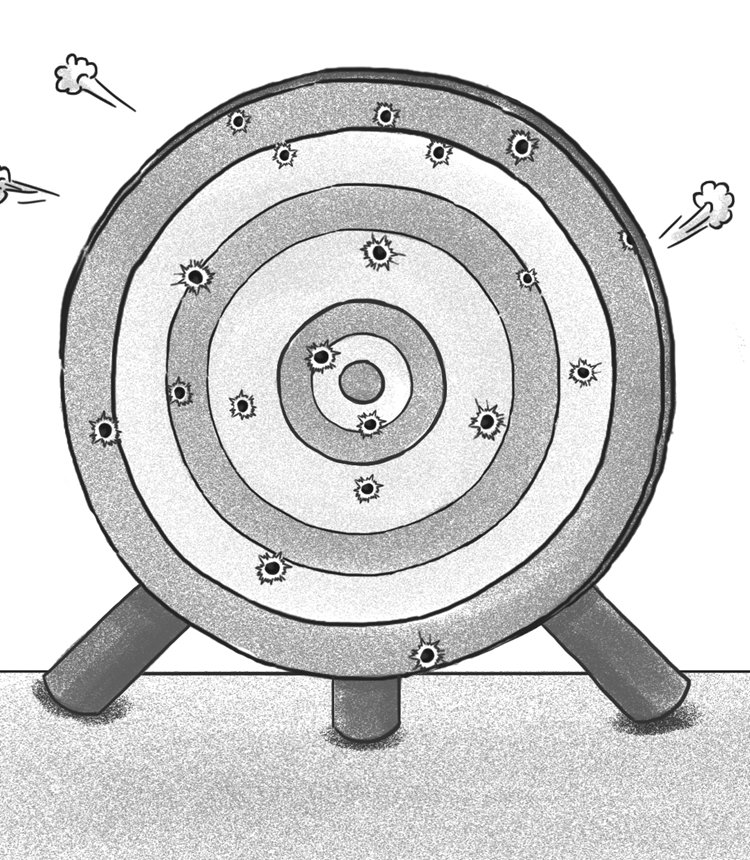HOME >> BUSINESS
US tariffs create distortions, failing economies
By Toumert AI Source:Global Times Published: 2019/8/15 18:13:40

Illustration: Xia Qing/GT
A 21st-century World War III has already begun and it is not a traditional one, where opposite armies and ideologies face each other in a conventional battlefield. This war is economic and asymmetric, and it risks leading to a total collapse of some economies and currencies. This could also create failed states.
The world economy is under stress from the US administration. The conflict is not about putting boots on the ground, but rather using international economic power and laws that were put in place by the US a century ago to reshape the world. Of course, there is also the threat of military confrontation as a backup plan.
To make it sound acceptable and less confrontational we use the words like "disputes" or "national security" or "unfair trade."
The US administration is battling major economic blocs. It has already changed the NAFTA agreement. It is in dispute with the European bloc, and is pushing for a no-deal Brexit and empowering its Asian allies to use the same tactics in their regional trade, as can be seen with Japan and South Korea. And of course, the US is accusing China of currency manipulation.
The US is also putting pressure on Iran, Venezuela, and, to a certain extent, Russia.
We have to understand that the US push in its EU economic trade relations is merely an excuse to give an advantage to US companies, with the hope of using tariffs to restrict market access in America while gaining favorable market concessions from the EU.
The tariffs concern a wide range of agricultural products, as well as the aviation and automotive industries.
Last year alone, the US brought more than 30 trade disputes cases against the EU, according to WTO records. We might argue that economic disagreements are normal, but the recent attacks on the EU could have a serious effect on the global economy; we are talking about the world's biggest bilateral trading and investment relationship. The trade relations between the US and the EU create millions of jobs and wealth on both sides of the Atlantic.
So when the IMF issues a dire warning about the risks of low economic growth globally, we must be clear in designating the source of the problem: Washington strategists are pushing us toward recession.
As well as setting off an economic downturn, the US is using economic coercion against 28 countries and about 600 million citizens.
The latest economic flare up between South Korea and Japan is setting the stage for the new normal in settling disputes: tariff hikes. It is a domino effect. If the leading world economy is aggressively trying to gain advantage though economic protectionist policies, why not follow suit?
This leads us to China. What is the endgame for the Trump administration?
If the US confronts the EU, its ally and biggest economic partner, with the menace of tariffs, it would not be surprising for them to put China, their main global economic competitor, under siege.
We have to understand that, tariffs or not, the US deficit pattern is really not a key parameter to define their economic agenda or influence their economic growth. The US is a consumer economy with massive purchasing power, and running a trade deficit in the commodity sector is normal.
From a geopolitical point of view, US hegemony is taking a step further in cementing its grasp on the world, and a new, dangerous, unipolar world is taking shape.
As well as its 800 army bases worldwide, the US can use international economic institutions such as the WTO and the IMF to create economic hardship.
We see this new economic war taking place almost every day. Once you become a target of the US Federal Reserve, or the US Department of Commerce, you are cut off from the financial system. No bank, company or supplier will dare to do business in your country.
And this is alarming because this new economic war is easy to sell and to sustain. No congressional approval is needed, and international organizations such as the UN cannot intervene since there is no armed conflict. This is a war of economic attrition, with lasting devastating effects.
This begs the question, what is next? How can the rest of the world cope with this new reality?
First of all, countries' local economies must be able to sustain themselves. Local consumers need to have enough purchasing power to grow the local economy. Export-driven nations with no strong local economies and local purchasing power cannot weather the US' coercive economic measures.
Second, the world needs to influence the US. It must engage with more sensible elements in the American political establishment who understand the concept of shared destiny. As much as we need proper US leadership, we also need a unified Europe, a strong China and a multipolar world to bring stable growth for the 195 nations worldwide to choose what fits them best.
The author is director of education with the International Bachelor Program at the International School under the China Foreign Affairs University. bizopinion@globaltimes.com.cn
Posted in: INSIDER'S EYE